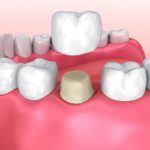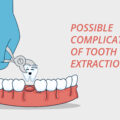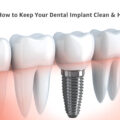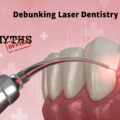
dentures
edental
21 February 2019
Dentures – Everything You Need to Know | Elite Dental Care Tracy
Obviously a lost tooth will affect your appearance however if you delay or avoid getting treatment, there can be more serious problems for your oral and general health. Your teeth support each other, so when one is missing, the teeth on either side can start to shift into the gap. Over time, this can lead to a crooked smile, bite problems and joint pain. If your teeth shift, you may not be able to reach all their surfaces when brushing and flossing. This allows plaque to form, increasing your risk of dental diseases such as tooth decay and gum disease that could lead to further tooth loss.
Your teeth also support your jaw by stimulating bone growth. When one or more teeth are absent, this can cause the jaw to shrink, altering the shape of your face. The temporomandibular joints (TMJ) that connect your jaw to your skull can be put under strain when your teeth shift out of position, often causing headaches and other pain and discomfort. Missing teeth can also make it harder to eat certain foods, which could limit your diet and affect your health. Dentures is the only perfect solution for missing tooth.
Dentures are artificial teeth and gums that are formed to fit in your mouth and created by your dentists to replace lost or removed natural teeth. Dentures can either be full or partial, meaning they can either replace all teeth on either the top or bottom gum line, or just a few that are missing. Regardless of what kind of dentures you may need, they will be custom designed to fit your mouth, and visually matched to your existing teeth. In some cases it might just improve your smile.
The materials used to make denture teeth are known to be more fragile than natural teeth and can easily chip or crack if dropped or otherwise uncared for. This material also wears down much quicker than natural teeth and thus must be replaced with a new set of dentures every five years or so. Your dentist will have several options available for you varying in price and complexity of the of procedure and you will have to make the right choice for your teeth. Dentures are classified into following categories:
1. Full Dentures consists of both upper and lower sets and are mainly used when all upper or lower natural teeth have gone or removed and tissues have healed, healing may take several months during which you are without teeth.
2. Partial Dentures are recommended when one or more off your natural teeth need to be replaced. It usually rests on a metal framework that attaches to your natural teeth. Sometimes crowns are placed on some of your natural teeth and serve as anchors for the denture.
3. Fixed Dentures are replacements for your tooth and are surgically fixed, including bridges, implants and over dentures. Implants and bridges tend to cost more than removable dentures and can be further classified as:
● Fixed Bridges are used to replace missing teeth by cementing an artificial tooth to the remaining natural teeth on each side.
● Implants are more like the roots of your teeth. They are surgically placed into the bone and fuse with it over time for a natural fit. The implant is then “loaded” with a prosthetic, either immediately after surgery or within six months.
● For Implant – Supported Fixed Dentures, a crown is secured to implants that are surgically inserted into the jawbone. It is then fixed in place by screws.
● For Implant – Supported Removable Dentures, implants in the jaw are used to attach a denture. This provides stability while allowing you to remove the denture if necessary.
Facts and Myths About Flossing
You might have an uncomfortable feeling for first few weeks or months as they need some time getting used to. Most users also experience trouble while eating and speaking and it will require some practice. Your muscles and tongue are getting used to it and these are some common denture problems faced by all users. It is always advised to visit your dentist for an annual regular checkup.




